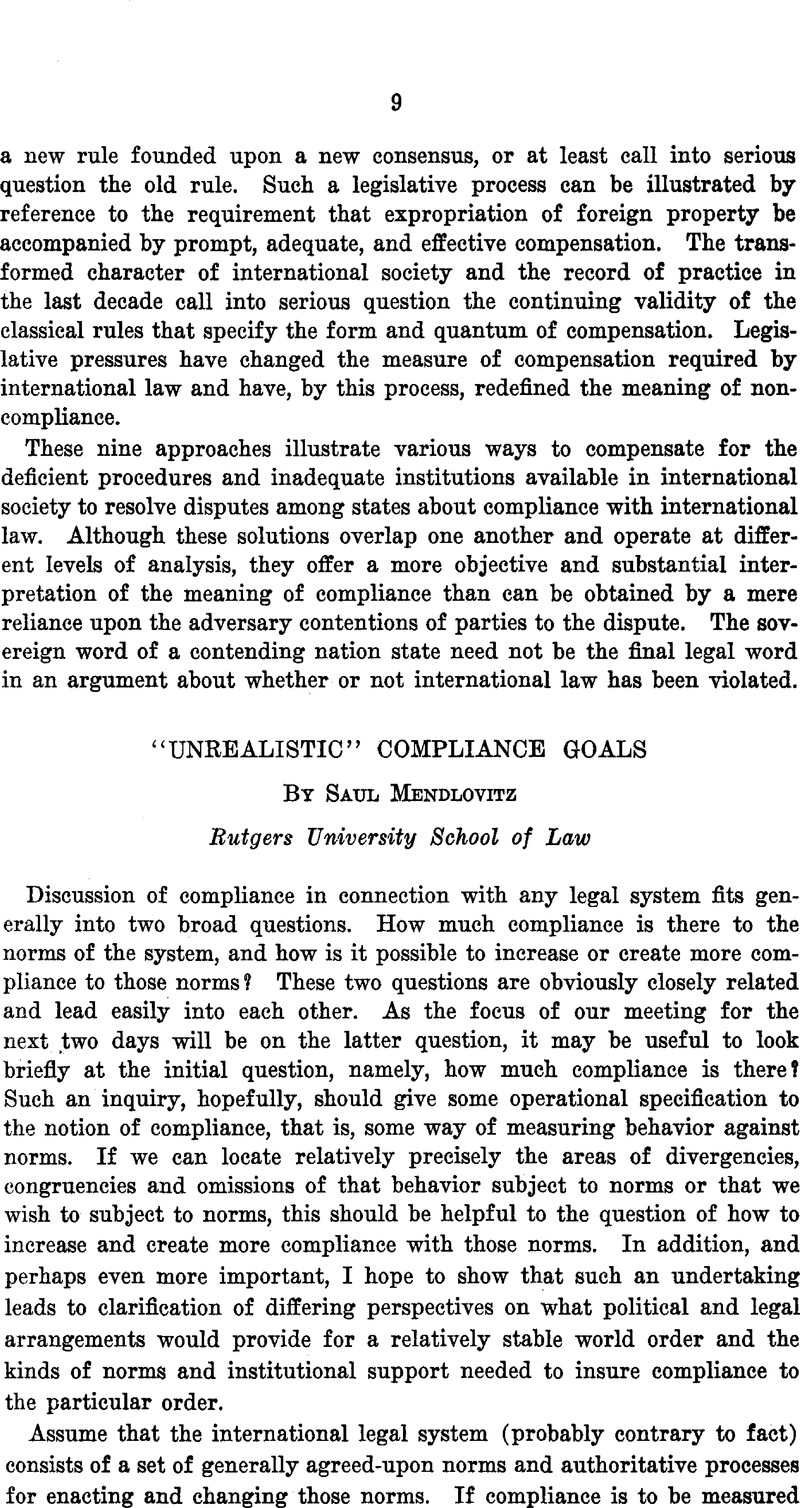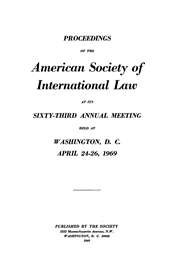No CrossRef data available.
Article contents
“Unrealistic” Compliance Goals
Published online by Cambridge University Press: 27 February 2017
Abstract

- Type
- First Session
- Information
- Copyright
- Copyright © American Society of International Law 1964
References
1 If law is viewed as a process of decisions made by authoritative decision-makers in accordance with community expectations, agreed norms may seem too formal and rigid a standard. It may well be that community expectations would provide a more relevant empirical standard for large numbers of problems; if so, this would imply important theoretical differences and involve different operational techniques for measuring compliance. It should be obvious, however, that whichever standard is used—agreed norms or community expectations as mediated by authoritative decisionmakers— a set of questions similar to those listed in the text would be applicable.
2 Mansfield, Boggs, Pell, and Smith, Berlin in a Changing World (A Report to the Committee on Foreign Eelations, United States Senate), 88th Cong., 1st Sess. (Committee Print, 1963), pp. 1-2.
3 Throughout this paper, discussion of Berlin, both as to political and legal history and the methodology of studying compliance in international law, draws heavily on a paper written by this author for the Ohio Begional Meeting of the American Society of International Law of April, 1963. Entitled “A Eelevant Legal Context for the Problem of West Berlin,” it, along with other papers on the problems of Berlin presented at that meeting, will be published by the Ohio State University Press in autumn, 1964.
4 That policy-makers state they have not, nor have had any intention of taking into account the norms of international law is not, of course, conclusive on this point.
5 In light of what follows in the text, it is only fair to point out that Mr. Chayes, speaking as former professor of law, protested strongly that this was not a useful question. I agree with both his position and the reasons with which he supported it; it is unlikely, however, that he would agree with the additional reasons which are being presented here.
6 Professor Fisher's paper is in the form of a report to the United States Arms Control and Disarmament Agency and is titled “Enforcement of Arms Control and Disarmament Measures by the Imposition of Sanctions of Individual Officer.” It has not been otherwise published and I am indebted to him for his permission to make use of it here. He should not be held responsible in any other way, however, for this summary and analysis.
7 Mendlovitz, “Teaching War Prevention,” 20 Bulletin of Atomic Scientists 14.
8 The function of “pure” Utopianism as contrasted with a relevant Utopia is probably insufficiently appreciated by contemporary scholars because of their understandable preoccupation with the dual problems of winning the cold war and averting the thermonuclear one. We need to know, however, when and how to rise above the contemporary human condition—to transcend ourselves and our history as it were—through the act of creating far-seeing and more noble visions. This point, which frequently suffers the charge of being too vague or too poetic for consideration by legal scholars, has been systematically treated in Karl Mannheim's classic, Ideology and Utopia.




